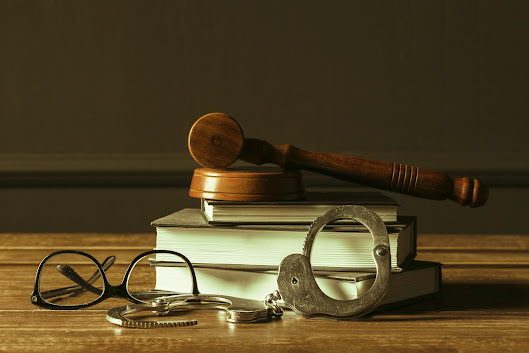Legal Rights of Defendants in Criminal Cases
Facing legal stuff can be scary, especially if you're in trouble with the law. It's super important to know your rights so things are fair. This blog will explain your rights in an easy way so you can understand them better. We'll talk about things like having a criminal defense lawyer and a fair trial and when it's smart to stay quiet. Whether you're in trouble or just want to know about the law, this guide is here to help you get it. Let's figure out the important stuff together!
Your right to an attorney
If you're in trouble with the law, having a lawyer is not just a fancy option – it's something you're supposed to have. This means you can have a legal professional represent you, whether it's a public defender or a private attorney like Eric Thole, Attorney at Law. If you can't afford one, the court will appoint a public defender to ensure you have a fair shot at presenting your case.
Importance of a fair trial
Getting a fair trial is super important for the justice system to work well. This means you're entitled to an impartial trial with an impartial judge and jury. It's your chance to present your side of the story, and everyone involved should play fair to ensure justice prevails.
Your right to remain silent
You've probably heard it on TV – the right to remain silent. This means you don't have to avoid answering questions that might make you look guilty. It's like a shield, guarding you from saying things that others could use against you later. Remember those Miranda rights you've seen in police dramas? They're real, and they're there to protect you.
Confronting your accusers
Have you ever watched a courtroom drama where a lawyer cross-examines a witness? That's all about the right to confront your accusers. You have the right to question the evidence presented against you. It's not just about facing your opponent in court – it's about ensuring the evidence holds up under scrutiny.
Understanding the charges against you
It's like trying to play a game when you don't know the rules. You need to understand what people are saying you did wrong. The law says they have to tell you what they're accusing you of so you can get ready to defend yourself. If the charges seem unclear, feel free to ask for clarification. Understanding what you're up against is the first step in building a solid defense.
Your right to a speedy trial
Most people dislike waiting, especially when dealing with legal matters. The right to a speedy trial ensures that the legal system won't keep you in limbo for an eternity. A prompt trial prevents unnecessary delays and helps you move on with your life, whether you're found guilty or not.
Protection against unreasonable searches and seizures
Imagine your personal space as your castle. The Fourth Amendment ensures that your castle remains yours. It keeps you safe from police looking through your stuff without a good reason. For a search to happen, they usually need a warrant. Understanding this right ensures your privacy remains intact.
Right to appeal
Even if things don't go your way in the trial, there's still hope. You have the right to appeal the decision. This means a higher court will review the case, providing a second chance for justice to prevail. It's like a safety net, making sure we can correct mistakes from the lower court.
Conclusion
Knowing your legal rights as a defendant is crucial when facing criminal charges. This simple guide breaks down these rights in easy-to-understand terms, empowering you to navigate the legal system confidently. Remember, asserting your rights is not only your privilege but a fundamental aspect of a fair and just legal process. If you find yourself in a legal bind, seek a professional criminal defense lawyer to ensure you're fully aware of your rights and how to protect them.




Comments
Post a Comment